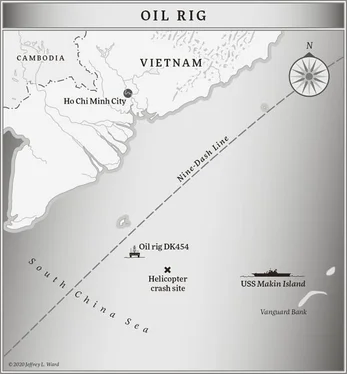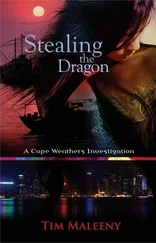Fu picked up his watch, a Tissot, also on the nightstand by his hat. “I will check the flights,” he said. “But it will take all day to get there via commercial airline.”
Talia’s beautiful thigh tensed—possibly because he spoke about leaving …
“Stand by,” Fu said, muting the phone and holding it away from his ear to check the distance between Moscow and Tirana, Albania, on the Internet. He turned the phone away so Talia could not observe his search.
The movement brought a whiff of Talia’s shampoo and he had to rub a hand across his face to stay focused.
“If I take a company plane I can be there in under four hours,” he said.
Her leg tensed again. Relaxed. A delicate foot tick-tocked back and forth at the end of the mattress, red toenails bright and stark against the white sheet. Her brain was working through some problem. Was it how to get Fu to stay with her, or was she instead envisioning a large map, as he would have done had he heard her having this same conversation? Was she trying to work out what important destinations a corporate jet might reach in less than four hours?
The admiral easily agreed to Fu’s use of the company plane, a Cessna Citation CJ3 registered to an Internet gaming company in Beijing. The company did not mind the use of their name on the international paperwork, and members of Admiral Zheng’s intelligence service enjoyed some degree of anonymity when they traveled. Four of Fu’s men were already in the air from Beijing. They would meet him in Tirana.
Fu ended the call and set the phone back on the nightstand beside his hat. He waited for Talia to speak.
She rolled toward him, draping her leg across his thighs again, nuzzling his neck with her button nose, kneading gently at his shoulder with her chin. “Do you really have to leave me, dorogoy ?” My darling.
“I am afraid so,” Fu said, attuned to the reaction of the muscles in her belly as she lay flush against his hip.
She groaned, pouting, pulling herself closer to him, as if getting any closer were even possible. “Ya nye magu byes teebya zheet.” Fu didn’t understand her, but he’d observed many times since he’d taken her to his bed that though her Mandarin was near perfect, she stuck to her native Russian in matters of the heart. She stuck out her bottom lip and translated. “I cannot live without you.”
She did not ask where he was going, which made him doubt his earlier assessment. Instead, she asked when he was coming back.
“I am not certain,” Fu said, being honest. He did not know if he would ever return to Moscow.
She nuzzled him harder, breathing against his neck. “You have at least one more hour, no?”
He shook his head. “I must leave now.”
She pulled away, far enough to lift herself up on one elbow and stare down at his face, head tilted, auburn hair draped to one side, exposing the small diamond stud in her beautiful ear. She kept her leg where it was, hooking him gently with her heel.
“What could be so important that you have to rush away?”
“Work,” he said, leaving it at that. Now her questions would come. The angled interrogation of a spy hiding under the guise of a wistful lover.
Instead, she collapsed beside him, dejected and glum, and pressed him no further. “Very well,” she said. “I am not accustomed to this. It is usually I who leaves.”
Fu kissed her on the shoulder and got out of bed.
Talia pulled the white sheet to her chin and rolled on her side to watch him get dressed. She slipped back and forth between Chinese and Russian as she talked about all the things they might do together when he came back to Moscow.
She was still in bed, naked but for the sheet, when he shrugged on his long wool coat and pulled his gray hat snug. The odds were sixty-forty against her working for the Russian SVR—and that saved her life.
For the moment.
35
Commander Wan’s exposure suit gripped him like a fist as water flooded the trunk and pressure equalized with the sea outside. He climbed the short ladder and unlocked the hatch. He took a deep breath before he gave it a kick. It opened easily, and he pulled himself through, clinging to a small exterior handle long enough to shut the door behind him, throwing him into complete and utter darkness.
And then he let go.
The sonar technician aboard Long March #880 had been off watch during the accident and sustained burns to the side of his face as part of the fire-suppression crew. At his station now, he turned his bandaged head toward the captain.
“Con, Sonar. Heavy screws. Close. Zero-five-zero.”
Captain Tian pursed his lips. Perhaps the distress buoy had gotten through the ice. “Another submarine?”
“Negative, Captain. A surface ship. Icebreaker.”
In training, Commander Wan had been taught to yell “ho, ho, ho,” like Santa Claus all the way to the surface to keep venting air so his lungs would not burst as the pressure increased as he shot to the surface. In truth, he simply screamed. The huge hood shot him upward at two meters per second, as if pulled by a hoist, arms outstretched over his head like Superman. Even moving so quickly, it took almost a minute and a half for him to reach the surface. Ears squealing, his lungs on fire, his face felt as though he’d been beaten with a hammer as pockets in his sinuses struggled to deal with the rapid ascent. And the cold. It was very cold, even in the suit. He imagined for a moment that he was falling, not rising, plummeting from a fifty-story building. If he hit overhead ice, the results would be close.
He’d been terrified through the entire journey, from the moment he’d dogged the hatch on the lockout trunk, but a minute in he began to fight true panic. The kind of panic that makes a submariner hold his breath or rip away some important piece of gear. The kind of panic that would kill him. He kept breathing out. Why was it still so dark? He had to be near the surface. Had they gotten the time wrong? Was it night? Did polar bears hunt at night? He should be nearing the surface by now. Ah … He’d been closing his eyes. Light. Gray at first. Then blue. Something pale passed in front of his eyes, scraping the hood, spinning him as he bounced away.
Ice.
His hands struck the base of the ice sheet first, his arms folding in on themselves as the speed of his body carried him up. The air in the bubble hood protected his skull from the worst of the impact—rattling him, but not breaking his neck as he’d feared. He followed the light, rebreathing what little air he had left in the hood as he crawled along the bottom of the ice, pulling himself toward what he hoped was the edge.
At some point, he’d have nothing but carbon dioxide.
Blue-white chunks of ice as big as cars bobbed and rolled in a slurry of smaller slush, basketballs, soccer balls, baseballs, all jagged and sharp, tearing at his suit. A sudden shock hit the small of his back as freezing water began to seep in. Floundering, he kicked toward what looked like the edge. One of the crew had made him a set of spikes out of two pieces of a mop handle and sharpened bolts. Fighting the swaying current, terrified of being sucked under, he popped the protective corks off the sharpened ends and used them to pull himself upward. Kicking was difficult within the cumbersome suit, but he powered himself up—only to be rolled off the other side as what he thought was a shelf turned out to be a small, tippy berg. Water began to seep into his suit again. If it filled, he would, at the very least, freeze to death. If he lost the flotation, he would return to the sub, very slowly and very dead.
He found the edge, a two-foot-thick shelf. It was much too high for him to get a correct angle with the ice spikes without taking the suit off. That was not going to happen.
Читать дальше











![Александр Ирвин - Tom Clancy’s The Division 2. Фальшивый рассвет [litres]](/books/417744/aleksandr-irvin-tom-clancy-s-the-division-2-falsh-thumb.webp)
